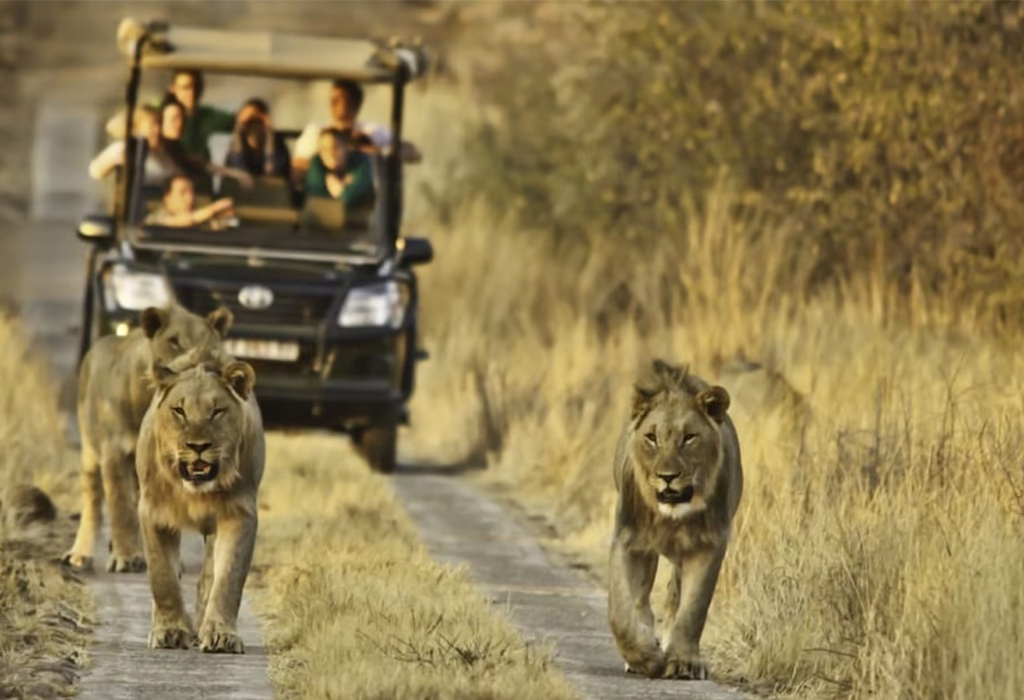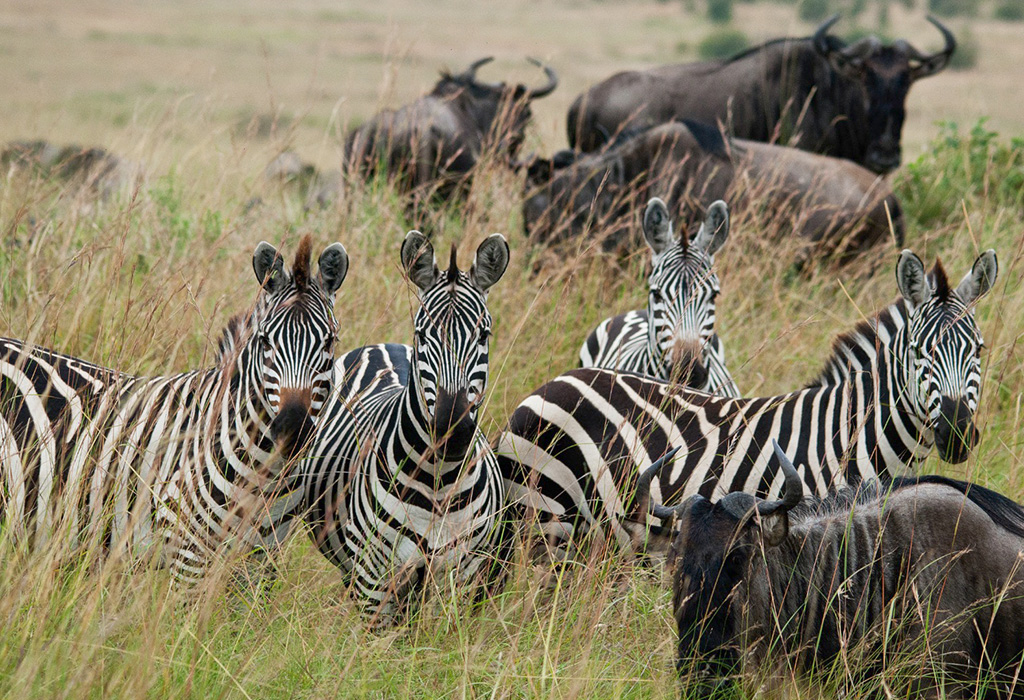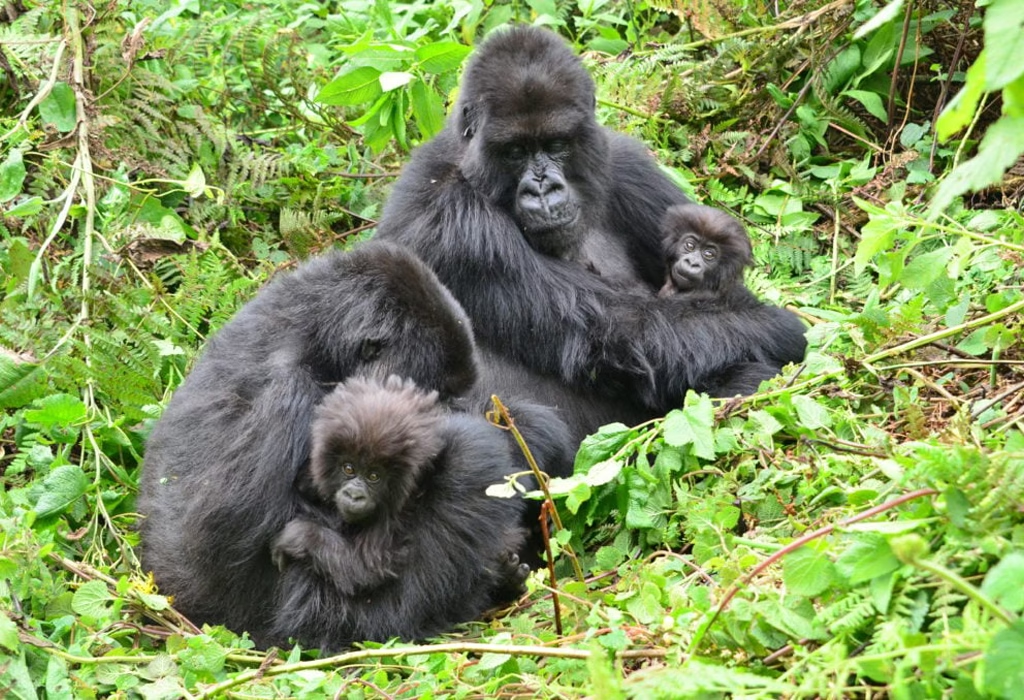
Why Lions don’t attack safari vehicles?
Why Lions Don’t Attack Safari Vehicles
There’s a certain magic in locking eyes with a wild lion from the open roof of a safari vehicle. It’s an experience that stirs the soul, reminding you of how small you are in the wild’s grand design. Yet, for many travelers, one question lingers as they inch closer to these powerful predators: Why don’t lions attack safari vehicles?
It may seem counterintuitive that the king of the savannah would remain indifferent to a noisy, open-roofed truck packed with humans and cameras. But this very mystery is one of the most remarkable aspects of wildlife safaris in Africa. Understanding why lions don’t attack these vehicles not only deepens your respect for these majestic creatures but also transforms the safari experience into a lesson in harmony between man and nature.
The Illusion of Size and Shape
To a lion, the safari vehicle is not a collection of individual people, but one large, strange animal. The key is its consistent shape and behavior. Safari vehicles are designed to look and move as a single entity large, unthreatening, and predictable.
Lions, like most wild animals, rely on pattern recognition. A vehicle that sticks to predictable movement, doesn’t separate into parts (people getting out), and keeps a respectful distance is quickly perceived as non-threatening. Lions don’t see individual tourists they see a big, oddly-shaped creature that never bothers them.
This explains why you’re told never to stand up or wave your arms outside the vehicle. Doing so breaks the illusion and might make a lion re-evaluate what it’s seeing. Sudden movements or sounds can provoke curiosity or fear, which is not something you want to trigger in a top predator.
Respect for Territory
Lions are territorial by nature, and they mark and defend their domains with instinctive pride. However, they tend to be more tolerant when the “intruder” doesn’t cross certain lines. Safari vehicles stick to tracks and don’t invade dens or disturb feeding routines. This respectful distance becomes familiar and accepted.
Over time, lions in popular parks like Serengeti, Masai Mara, or Kruger become habituated. They’ve learned that safari vehicles are part of the background, like the wind in the grass or the sound of birds. They might glance at the vehicles or even nap beside them, completely unfazed.
This isn’t tameness. It’s trust based on non-interference.
Generations of Habituation
In places where safari tourism has existed for decades, lion prides have grown up alongside vehicles. Cubs are born and raised seeing these vehicles as a normal part of life. By the time they are adult lions, they’ve already learned through observation and experience that vehicles are neither prey nor predator.
Guides often speak of seeing the same lion pride year after year, recognizing familiar individuals by their scars, manes, or behavior. These lions don’t react defensively because they’ve never had a negative encounter with humans in vehicles. Their tolerance is a learned behavior passed through observation, not domestication.
You Are Not Prey
Lions are instinct-driven animals. They hunt what they are evolutionarily wired to recognize as prey: zebras, antelopes, buffalos. A safari vehicle, no matter how many people it carries, doesn’t fit into this prey profile. It doesn’t smell right, move right, or respond like food would.
Even if lions sense humans inside the vehicle, they don’t associate us with vulnerability when we’re inside the metallic shell. The human form loses its meaning when part of a bigger, noisier, and unfamiliar shape. And since lions are generally cautious hunters that avoid unnecessary risk, they don’t see the benefit of engaging something so unknown.
The Role of Professional Safari Guides
Another critical factor in keeping encounters peaceful is the deep knowledge of professional guides. Safari guides are trained to read animal behavior with incredible accuracy. They know when to move, when to stop, and when to give a pride of lions its space.
They can sense subtle changes in posture, ears, tail flicks, or eye contact that indicate a lion’s mood. This skill ensures that tourists don’t overstretch boundaries, keeping interactions calm and enriching.
Guides also enforce strict rules no shouting, no standing up, no feeding or touching the animals. These rules aren’t just for your safety; they protect the dignity and wildness of the lions themselves.
When Things Go Wrong
It’s extremely rare, but on a few occasions, lions have investigated safari vehicles more closely than usual often out of curiosity, not aggression. In those rare cases, it’s usually due to broken rules: tourists trying to attract attention, stepping out of the car, or invading a lion’s space during feeding or mating.
The truth is, lions can be dangerous if provoked or surprised. But in properly managed parks, with responsible behavior and good guiding, the risk is almost nonexistent.
That’s why national parks enforce strict policies about not exiting your vehicle unless in designated areas and always being accompanied by a guide during bush walks.
The Real Danger: Losing Respect
The real danger isn’t that lions will attack. It’s that we forget their power and treat them like zoo exhibits. Lions are wild animals, and their indifference to our presence is a fragile, earned trust. The moment we start pushing that boundary getting too close, making noise, or taking foolish selfies that trust can shatter.
This is why sustainable tourism, respect for wildlife, and ethical safari practices are more important than ever. We’re guests in their home, not spectators at a performance.
A Lesson in Coexistence
The fact that lions don’t attack safari vehicles speaks volumes about the possibility of peaceful coexistence between humans and wildlife. It’s not magic it’s mutual respect. We stay within our boundaries, and they stay within theirs.
Seeing a lion walk past your open-sided Land Cruiser without a care in the world is humbling. It reminds you that true power doesn’t need to roar to be felt. It simply walks with confidence, knowing it has nothing to prove.
Final Thoughts
So the next time you’re on a game drive and a lion glances at you before yawning and lying down in the grass, take a deep breath and smile. You’re witnessing something extraordinary: a moment of wild trust that only exists when humans learn to be present without being intrusive.
Lions don’t attack safari vehicles because they’ve learned that these strange creatures with wheels mean no harm. In return, we get to witness their lives in the raw beauty of the African wild. That silent understanding between you and the lion is one of the purest forms of respect nature can offer.


